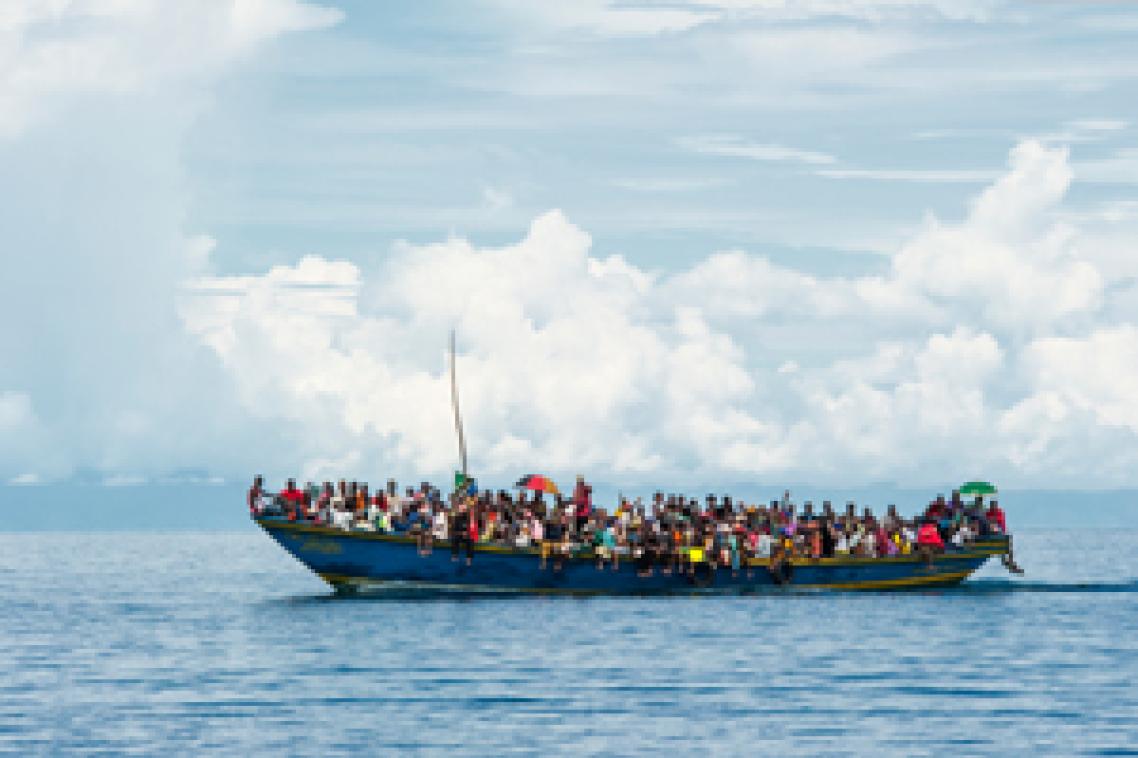Research challenges boat turn-back policy

Research by The University of Queensland’s Migrant Smuggling Working Group shows that Australia’s policy to turn-back boats does little to combat migrant smuggling, violates international obligations and jeopardises the fragile relationship with Indonesia.
The policy to turn back vessels carrying irregular migrants – most of them asylum-seekers – was reintroduced by the government in December 2013, and 16 vessels have been returned to Indonesia or Sri Lanka since.
Professor of Criminal Law and coordinator of the Migrant Smuggling Working Group Dr Andreas Schloenhardt said that effect of the policy was questionable.
“One of the main effects of the turn-back policy has been a shifting of Australian responsibilities to other countries and a rejection of Australia’s obligation under international refugee law,” he said.
“The execution of the ‘turn-backs’ has placed passengers and crew on board the vessels, as well as Australian Navy and Customs personnel, at risk of serious injury and death, especially if the vessels are not seaworthy or are sabotaged by desperate migrants.
“The policy has only achieved one of its objectives: that is, to prevent irregular migrants, most of whom seek asylum, from arriving in Australia.”
Dr Schloenhardt said the policy had not addressed the causes of migrant smuggling and had placed a greater burden on transit countries such as Indonesia.
“Asylum seekers bound for Australia instead remain in, or are returned to, countries where they have no permanent status, where they may have to live in hiding, and where the persecuted face a real risk of being returned to their persecutors,” he said.
“Returning vessels carrying asylum seekers from Australia has severely damaged Australia’s already poor human rights record relating to asylum seekers and has tarnished Australia’s image.
“It has effectively rendered Australia’s signature of the Refugee Convention meaningless.”
The full findings of the study will be presented at 11:30am on Friday 13 March at Bond University, Robina. Register at http://enews.bond.edu.au/link/id/zzzz54d02896705af900P/page.html?evuid=zzzz54d028965df8d078.
The research, co-authored by UQ student Colin Craig, titled Turning Back the Boats: Australia’s Interdiction of Irregular Migrants at Sea, is to appear in a forthcoming edition of the International Journal of Refugee Law.
Media: Professor Andreas Schloenhardt, a.schloenhardt@uq.edu.au, 07 3365 6191, Media consultant Danielle Koopman, d.koopman@uq.edu.au, 3346 0700
Topics
Related articles
“Art Museums are the site of public forum.” Meet UQ Art Museum's Director

Medicinal cannabis is big business. But the latest clampdown won’t curb unsafe prescribing
Media contact
UQ Communications
communications@uq.edu.au
+61 429 056 139
